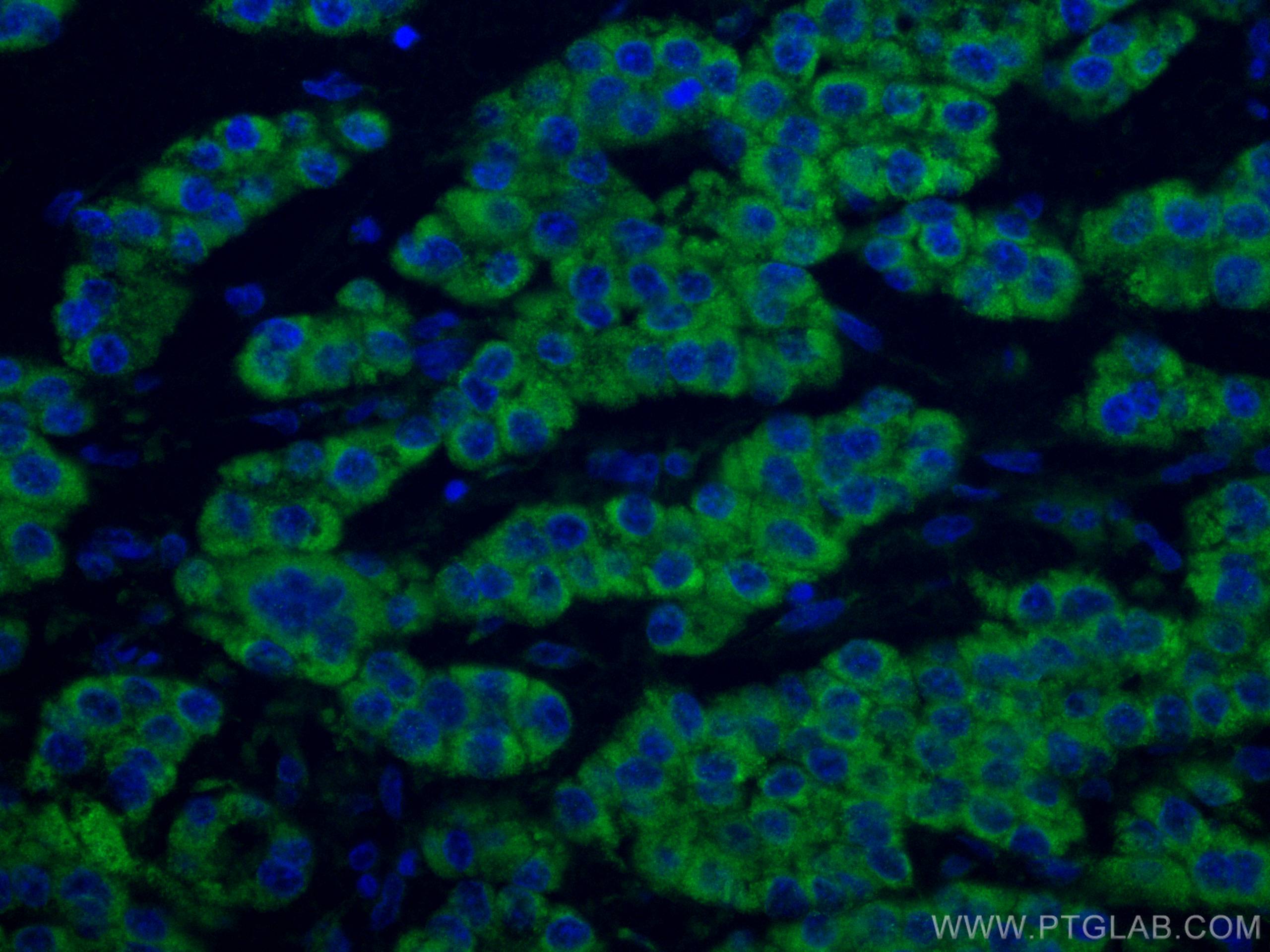Tested Applications
| Positive IF-P detected in | human liver cancer tissue |
Recommended dilution
| Application | Dilution |
|---|---|
| Immunofluorescence (IF)-P | IF-P : 1:50-1:500 |
| It is recommended that this reagent should be titrated in each testing system to obtain optimal results. | |
| Sample-dependent, Check data in validation data gallery. | |
Product Information
CL488-67742 targets ACADM in IF-P applications and shows reactivity with Human samples.
| Tested Reactivity | Human |
| Host / Isotype | Mouse / IgG1 |
| Class | Monoclonal |
| Type | Antibody |
| Immunogen |
CatNo: Ag30620 Product name: Recombinant human ACADM protein Source: e coli.-derived, PET28a Tag: 6*His Domain: 205-352 aa of BC005377 Sequence: ARSDPDPKAPANKAFTGFIVEADTPGIQIGRKELNMGQRCSDTRGIVFEDVKVPKENVLIGDGAGFKVAMGAFDKTRPVVAAGAVGLAQRALDEATKYALERKTFGKLLVEHQAISFMLAEMAMKVELARMSYQRAAWEVDSGRRNTY Predict reactive species |
| Full Name | acyl-Coenzyme A dehydrogenase, C-4 to C-12 straight chain |
| Calculated Molecular Weight | 421 aa, 47 kDa |
| Observed Molecular Weight | 42-47 kDa |
| GenBank Accession Number | BC005377 |
| Gene Symbol | ACADM |
| Gene ID (NCBI) | 34 |
| RRID | AB_2919535 |
| Conjugate | CoraLite® Plus 488 Fluorescent Dye |
| Excitation/Emission Maxima Wavelengths | 493 nm / 522 nm |
| Form | Liquid |
| Purification Method | Protein G purification |
| UNIPROT ID | P11310 |
| Storage Buffer | PBS with 50% glycerol, 0.05% Proclin300, 0.5% BSA, pH 7.3. |
| Storage Conditions | Store at -20°C. Avoid exposure to light. Stable for one year after shipment. Aliquoting is unnecessary for -20oC storage. |
Background Information
ACADM, also named as MCAD, belongs to the acyl-CoA dehydrogenase family. This enzyme is specific for acyl chain lengths of 4 to 16. It catalyzes the reaction: Acyl-CoA + acceptor = 2,3-dehydroacyl-CoA + reduced acceptor. Defects in ACADM are the cause of medium-chain acyl-CoA dehydrogenase deficiency (MCAD deficiency). This protein can exsit as a dimer(PMID:8962055). This antibody is specific to ACADM.
Protocols
| Product Specific Protocols | |
|---|---|
| IF protocol for CL Plus 488 ACADM antibody CL488-67742 | Download protocol |
| Standard Protocols | |
|---|---|
| Click here to view our Standard Protocols |




